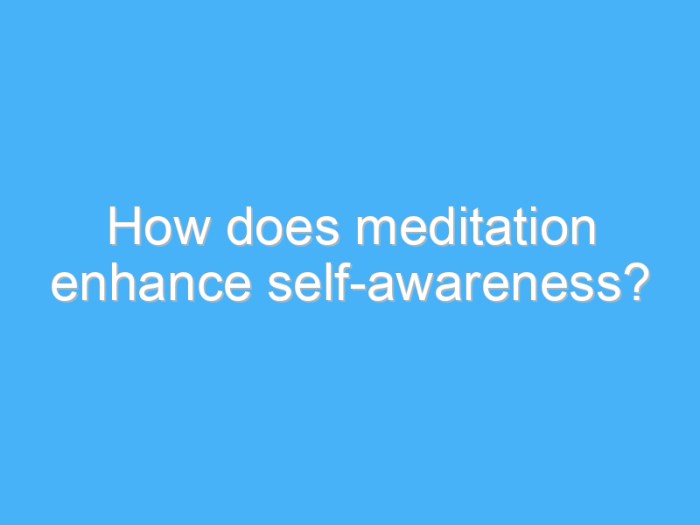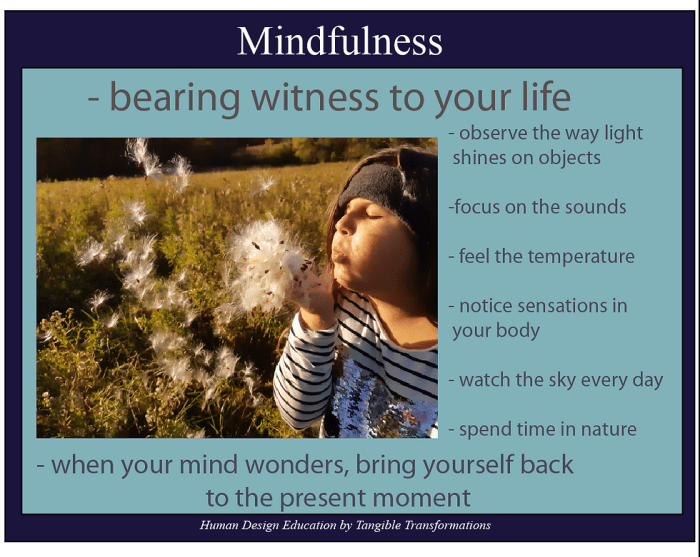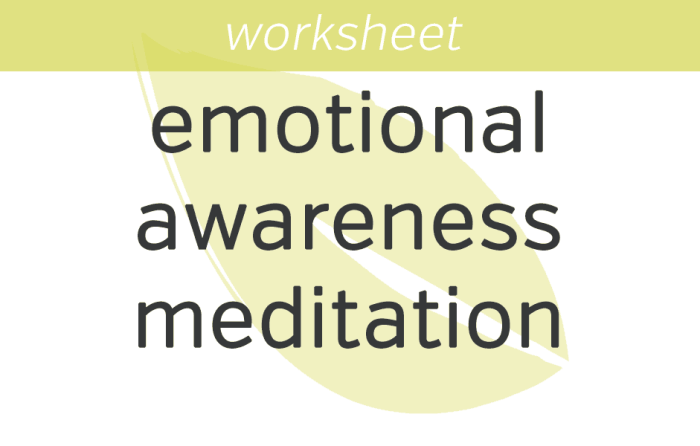How to Meditate for Enhancing Your Emotional Awareness dives into the world of meditation, offering insights on how to elevate your emotional intelligence through mindfulness practices and self-reflection.
Explore the steps, techniques, and benefits of enhancing your emotional awareness through meditation in this comprehensive guide.
Introduction to Emotional Awareness through Meditation: How To Meditate For Enhancing Your Emotional Awareness

Emotional awareness is the ability to recognize, understand, and manage your own emotions as well as the emotions of others. It involves being in tune with your feelings and being able to express them in a healthy way.
Looking to boost your emotional intelligence? Check out this guide on How to Meditate to Strengthen Your Emotional Intelligence for some effective techniques to enhance your emotional awareness and management skills. By incorporating meditation into your daily routine, you can develop a deeper understanding of your emotions and how to respond to them in a healthy way.
Benefits of Enhancing Emotional Awareness
- Improved Communication: When you are more aware of your emotions, you can communicate more effectively with others. This can lead to better relationships and fewer misunderstandings.
- Enhanced Empathy: Emotional awareness allows you to better understand the feelings and perspectives of those around you. This can help you connect on a deeper level and show more compassion towards others.
- Better Decision-Making: When you are in touch with your emotions, you can make decisions that align with your values and goals. This can lead to more fulfilling outcomes and a greater sense of satisfaction.
Understanding Meditation for Emotional Awareness

Meditation plays a crucial role in enhancing emotional awareness by helping individuals cultivate mindfulness, self-reflection, and self-regulation. It allows one to observe their thoughts and emotions without judgment, leading to a deeper understanding of their inner world.
Looking to enhance your emotional intelligence? Dive into the world of meditation and discover How to Meditate to Strengthen Your Emotional Intelligence. These techniques will help you connect with your emotions and navigate them effectively in any situation.
Different Meditation Techniques for Enhancing Emotional Awareness, How to Meditate for Enhancing Your Emotional Awareness
- Guided Visualization: Involves imagining calming scenes or experiences to evoke positive emotions and reduce stress.
- Loving-Kindness Meditation: Focuses on developing compassion and empathy towards oneself and others, promoting emotional well-being.
- Body Scan Meditation: Involves systematically scanning the body for sensations, promoting awareness of physical and emotional states.
- Breath Awareness Meditation: Focuses on observing the breath to anchor attention, leading to increased emotional stability and clarity.
How Mindfulness Practices Can Help in Developing Emotional Intelligence
Mindfulness practices, such as meditation, can aid in developing emotional intelligence by enhancing self-awareness, self-regulation, and empathy. By being present in the moment and observing thoughts and emotions non-judgmentally, individuals can better understand their triggers and reactions, leading to more adaptive responses in challenging situations.
Steps to Meditate for Enhancing Emotional Awareness

Meditation is a powerful tool for enhancing emotional awareness. By practicing meditation regularly, you can learn to observe your thoughts and emotions without judgment, leading to greater self-awareness and emotional intelligence.
Step 1: Find a Quiet Space
Choose a quiet and peaceful space where you can meditate without distractions. Create a comfortable sitting position, either on a cushion or a chair, and ensure that your back is straight to maintain alertness.
Step 2: Focus on Your Breath
Close your eyes and bring your attention to your breath. Notice the sensation of the breath as it enters and leaves your body. Focus on the rise and fall of your chest or the feeling of air passing through your nostrils.
Step 3: Observe Your Thoughts
As you continue to focus on your breath, thoughts and emotions may arise. Instead of getting caught up in them, simply observe them without judgment. Notice how certain thoughts or emotions make you feel and let them pass without getting attached to them.
Step 4: Cultivate Compassion
During your meditation practice, cultivate feelings of compassion towards yourself and others. Recognize that all beings experience suffering and wish for them to be free from pain. This practice can help you develop empathy and emotional resilience.
Step 5: Practice Consistently
Consistency is key when it comes to meditation for enhancing emotional awareness. Set aside a few minutes each day to practice meditation, even if it’s just for a short period. Over time, you’ll start to notice the positive impact it has on your emotional well-being.
Step 6: Reflect on Your Practice
After each meditation session, take a few moments to reflect on your experience. Notice any changes in your emotional state or awareness throughout the practice. This reflection can help you track your progress and make adjustments to your meditation routine as needed.
Deepening Emotional Awareness through Meditation

Meditation is a powerful tool that can not only enhance emotional awareness but also deepen one’s emotional intelligence. By practicing mindfulness and self-reflection, individuals can develop a better understanding of their emotions and how to manage them effectively.
Recognizing Emotions through Meditation
- Meditation helps individuals become more aware of their thoughts and emotions without judgment, allowing them to recognize and acknowledge their feelings.
- By cultivating a sense of inner calm and presence through meditation, individuals can create space to observe their emotions as they arise, gaining insight into their triggers and patterns.
- Through consistent meditation practice, individuals can develop the ability to identify and label their emotions accurately, leading to greater emotional awareness.
Managing Emotions effectively through Meditation
- By practicing meditation regularly, individuals can learn to respond to their emotions with mindfulness and compassion instead of reacting impulsively.
- Meditation techniques, such as deep breathing and body scan, can help individuals regulate their emotions and stay grounded during challenging situations.
- Through meditation, individuals can cultivate a sense of equanimity and resilience, enabling them to navigate through emotional ups and downs with grace and composure.
Role of Self-Reflection in Improving Emotional Awareness
- Self-reflection is a key component of meditation that involves introspection and contemplation of one’s thoughts, emotions, and behaviors.
- By engaging in self-reflection practices during meditation, individuals can gain valuable insights into the root causes of their emotions and develop strategies to address them effectively.
- Through self-reflection, individuals can cultivate a deeper sense of self-awareness and emotional intelligence, leading to improved emotional regulation and interpersonal relationships.
In conclusion, mastering the art of meditation can truly transform your emotional awareness, leading to better relationships, sound decision-making, and a deeper understanding of your own emotions.